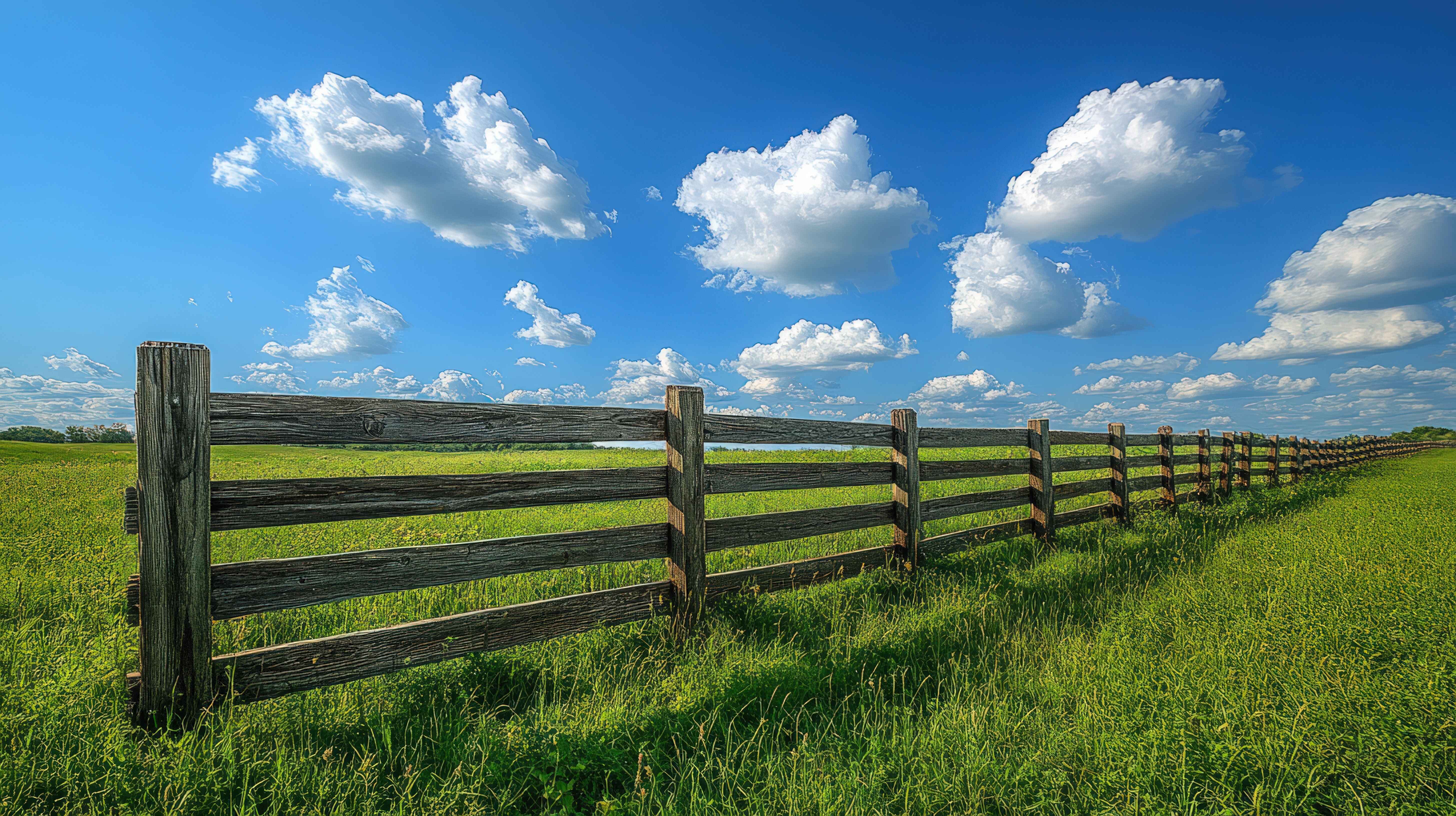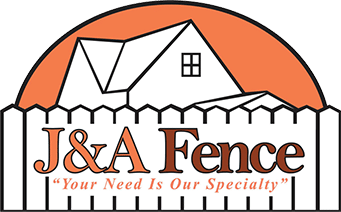Agricultural Fencing: Protecting Farms and Livestock
By J&A Fence / August 25, 2025
Fencing is essential in modern agriculture for setting clear boundaries, protecting crops, and keeping livestock safe from predators and escape. Beyond simple barriers, agricultural fences support efficient land management and help reduce potential losses. Whether you manage a small farm or a large operation, investing in the right fencing solution is key to maintaining a secure and thriving farm.
This blog explores the different types of agricultural fencing and what factors to keep in mind when selecting the best option for your farm.
Common Agricultural Fencing Types
Here are the most usual types to consider when selecting a fence for your farm:
Chain Link
This type of fence is a practical choice for agricultural settings as it offers clear visibility, long‑lasting strength, and reliable security. It effectively keeps livestock contained while preventing trespassers, so it works for both animal pens and equipment yards. In addition, its galvanized steel construction also holds up well in various weather conditions with minimal maintenance required.
Wood
Wood fencing remains a classic option for farms due to its natural appearance and reliable strength. It's especially preferred for containing horses and larger livestock because of the solid barrier that is gentle enough to prevent injury. With the right treatment, this type of fence can also stand up to the elements and add rustic charm to any property.
Ornamental or Decorative
The ornamental type — typically made from aluminum — combines strength with an attractive appearance, making it ideal for visible areas such as farm entrances or gardens. Although it's not meant for keeping large animals in, it provides a secure boundary for certain parts of the property. Its rust-resistant coating and low maintenance needs make it a smart choice for farm settings.
Key Considerations for Choosing a Fence
These are the key things to remember that will help you choose the right fence for your farm:
1. Identify Animals or Crops To Protect
Start by defining what the fence needs to guard — whether it's livestock like cattle, sheep, or horses, or crops that need protection from wildlife. Each requires a different type of fence, height, and strength level.
2. Check Local Zoning Regulations
Make sure your fence complies with local agricultural or property zoning codes before construction. Some areas have specific rules about height, materials, and placement that can affect your choices.
3. Evaluate Terrain and Soil Conditions
The land under your fence matters. Hilly, rocky, or soft terrain may require special post anchoring or flexible fencing solutions. Soil composition impacts the type of posts and installation method that will provide long-term stability.
4. Assess Durability and Maintenance Needs
Choose fencing materials that can withstand the local weather conditions and daily wear. For example, galvanized steel resists rust, while treated wood offers rustic strength but may need more upkeep. Consider how much time and effort you're willing to invest in repairs.
5. Ensure Security and Containment
Your fence should keep animals in and threats out. Make sure it's high enough, strong enough, and gap-free to prevent escapes or intrusions — especially if you're dealing with curious livestock or hungry wildlife.
6. Review Ease of Installation
Some fences may look easy to install, but getting help from a professional ensures they are built strong and last a long time. Even simple fences need to be installed the right way to avoid problems later on.
7. Plan for Longevity
Think beyond the first few years. Investing in high-quality materials from the start can result in fewer replacements and lower costs over time. Choose fencing designed to handle your area's weather and daily use.
8. Consider Aesthetics and Farm Appearance
While function comes first, the look of your fence still matters. A well-chosen fence can enhance the overall appearance and curb appeal of your farm or property.
9. Calculate Costs and Budget
Fencing is a long-term investment. Factor in not just material and labor costs, but also maintenance and possible repairs. Aim for the best quality your budget allows — it usually pays off in the long run.
Upgrade Your Farm’s Security With J&A Fence’s Quality Fencing Solutions!
J&A Fence is your trusted partner for durable, high-quality agricultural fencing tailored to protect your farm and livestock. We offer expert installation and a range of fencing solutions designed to withstand the elements and keep your property secure. Our team is ready to help you select the ideal fence to meet your specific needs.
Contact us today or call us at 484-368-2206 now and secure your farm with confidence!
